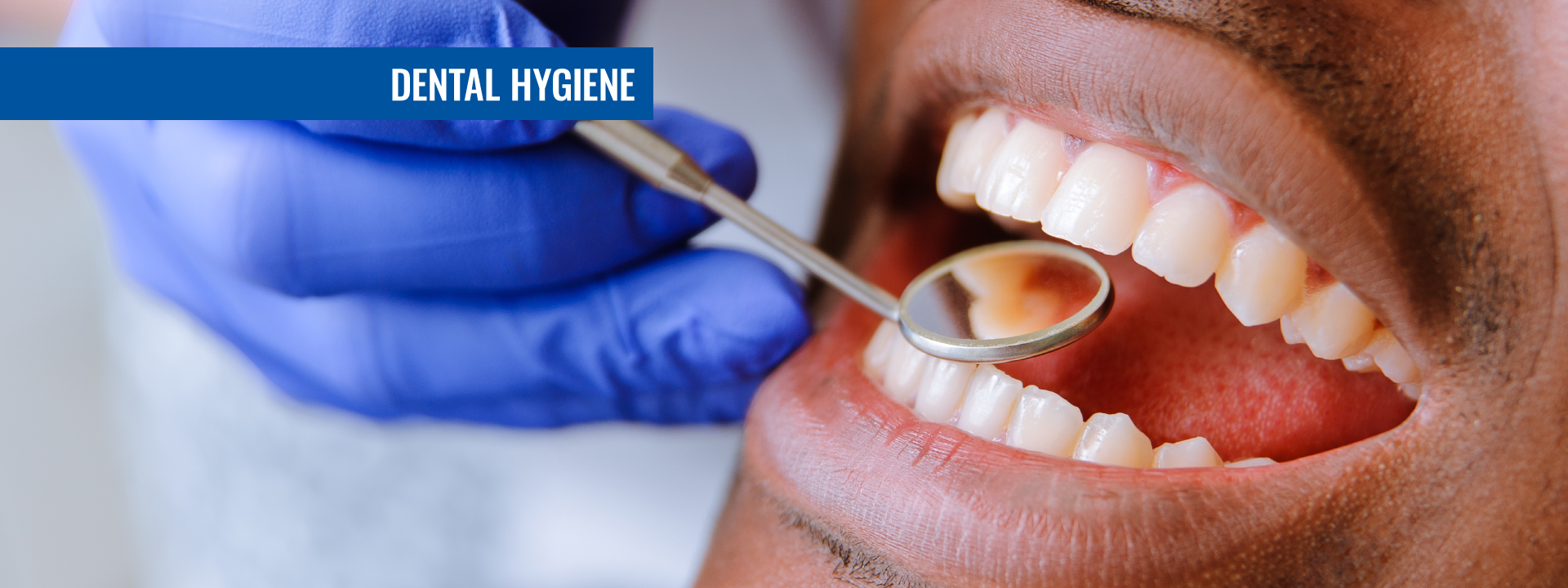Emphasis
The course of study in the Dental Hygiene program provides a broad-based education in the social, behavioral, and biological sciences with special emphasis toward:
- teaching,
- community health,
- and research.
Dental Hygiene Activities
Although legal dental hygiene functions vary from state to state, some of the functions routinely performed by a dental hygienist include, but are not limited to:
- calculus and plaque removal (hard and soft deposits) from above and below the gum line
- examination of the teeth and oral structure, including a soft tissue exam
- exposing, processing, and interpreting dental radiographs – Digital and Standard film
- plaque control instruction and developing personal oral hygiene programs for home care
- placing temporary fillings, applying periodontal dressings, removing sutures, polishing and re-contouring amalgam restorations (Only with advanced training)
- dietary and tobacco use counseling
- applying caries-preventive agents, such as fluorides and pit and fissure sealants
- educating the individual patient and the general public about the importance of good oral hygiene habits
- oral cancer and blood pressure screening
- designing community dental health programs
- oral health care research, data collection, and tabulation
-
working with special population groups (eg, minority groups, geriatric, mentally/physically disabled persons)
 CODA Accreditation CODA Accreditation
TSU's program in Dental Hygiene is accredited by the Commission on Dental Accreditation and has been granted the accreditation status of “approval without reporting requirements.” The Commission is a specialized accrediting body recognized by the United States Department of Education. The Commission on Dental Accreditation can be contacted at (312) 440-4653 or at 211 East Chicago Avenue, Chicago, IL 60611.
SACSCOC Accreditation
“Tennessee State University is accredited by the Southern Association of Colleges and Schools Commission on Colleges to award associate, baccalaureate, master's, specialist in education, and doctoral degrees. Tennessee State University also may offer credentials such as certificates and diplomas at approved degree levels. Questions about the accreditation of Tennessee State University may be directed in writing to the Southern Association of Colleges and Schools Commission on Colleges at 1866 Southern Lane, Decatur, Georgia 30033-4097, by calling 404-679-4500, or by using information available on SACSCOC's website (www.sacscoc.org).”
|
Mission Statement
View statement
Policies
View policies
Passing Rates
View outcomes
|



 CODA Accreditation
CODA Accreditation